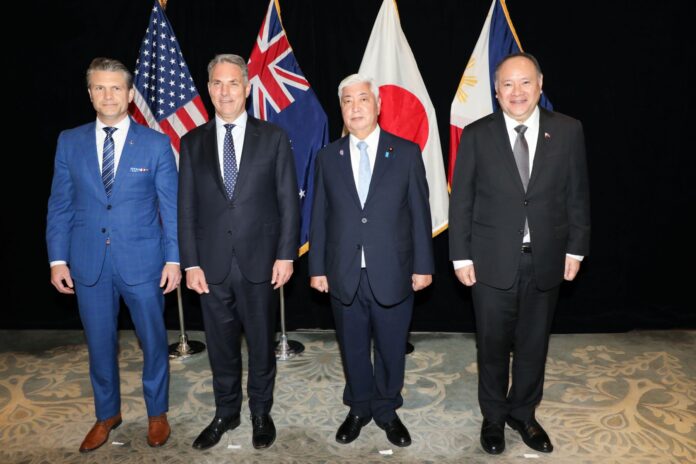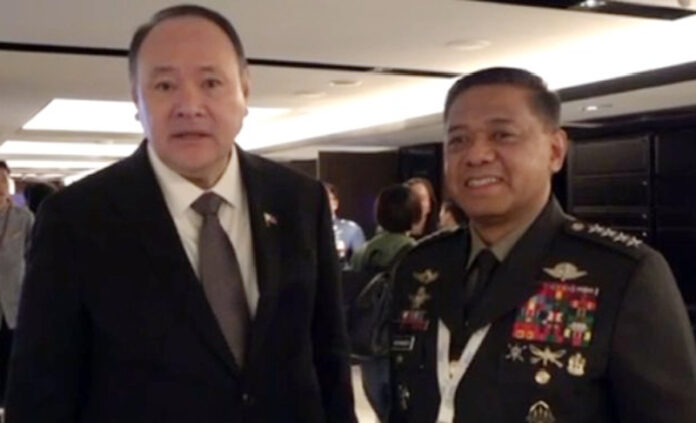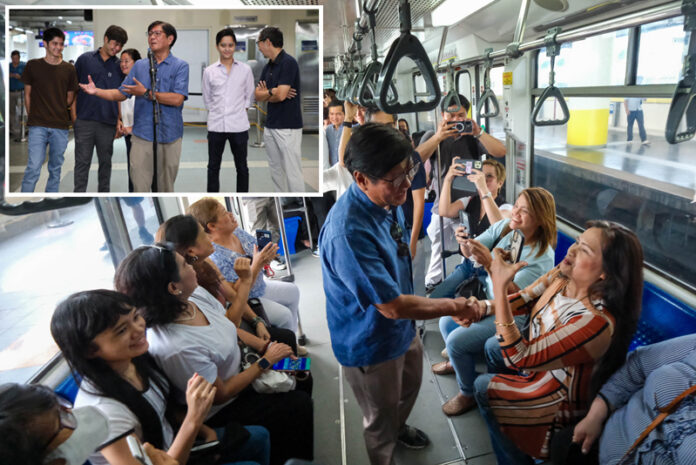Defense ministers of four allied nations attending the Shangri-La Dialogue in Singapore yesterday agreed to strengthen the Philippines’ ability to fend off sophisticated cyber attacks.
In a joint statement, Australian Deputy Prime Minister and Defence Minister Richard Marles, Japanese Defense Minister Nakatani Gen, Defense Secretary Gilberto Teodoro, Jr., and US Defense Secretary Pete Hegseth said they reached consensus on jointly investing in the Philippines’ cybersecurity and resilience.
The defense leaders also recognized the importance of cooperation to counter threats to national security posed by malicious cyber actors.
“This marked the fourth Defense Leaders Meeting of these four countries in the last three years, underscoring their sustained and significant collaboration to advance a shared vision for a free and open Indo-Pacific,” their statement read.
The defense leaders also expressed continued serious concern about China’s destabilizing actions in the East China Sea (ECS) and the South China Sea (SCS) and any unilateral attempts to change the status quo by force or coercion.
They also reiterated their serious concern about dangerous conduct by China in the SCS against the Philippines and other countries, and stressed the importance of the peaceful resolution of disputes.
They underscored the importance of upholding international law, freedom of navigation and overflight, particularly as reflected in the United Nations Convention on the Law of the Sea.
“The defense leaders called for peace and stability in the region. They underscored the importance of the central role of ASEAN and the ASEAN-led regional architecture in ensuring security and stability in the Indo-Pacific region.” It added.
The defense leaders also agreed on key initiatives to enhance regional security and cooperation in the Indo-Pacific.
They aligned efforts to strengthen Philippine defense infrastructure, including Japan-made air surveillance radars, U.S. air domain sensors, and Australia’s infrastructure support, collectively improving air and maritime domain awareness in the South China Sea.
Emphasizing the importance of enhanced information-sharing, the leaders supported agreements like the General Security of Military Information Agreement (GSOMIA) between the U.S. and the Philippines, with Australia and Japan exploring similar arrangements. These efforts aim to facilitate greater shared analysis through a combined hub.
They also underscored the value of joint operational activities in the East and South China Seas, committing to expand multilateral maritime exercises and explore joint intelligence, surveillance, and reconnaissance operations to improve interoperability.
Looking ahead, the leaders agreed to hold regular ministerial meetings and expand cooperation with like-minded partners to sustain peace, stability, and prosperity in the Indo-Pacific region.
Meanwhile, Teodoro also highlighted the potential for joint exploration of oil and gas reserves as a future area of collaboration between the United States and the Philippines.
The Philippines’ defense chief made the remarks during high-level discussions with members of the U.S. Congress on the sidelines of the Shangri-La Dialogue on Saturday.
In meetings with prominent members of the U.S. House of Representatives and Senate, Teodoro reaffirmed the Philippines’ commitment to a rules-based international order, according to the Department of National Defense.
He also assured U.S. lawmakers that the Philippines’ security alliance with the United States would remain unchanged.
Editor’s Note: This is an updated article. Originally posted with the headline: “Philippines, allied nations to beef up cyber defense cooperation”









